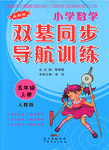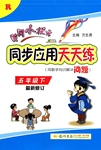题目内容
【题目】—I'm going to travel to America. Would you consider telling me about your experiences there?
— __________. Let's discuss it over dinner.
A. That's all right B. By all means
C. Go ahead D. it just depends
【答案】B
【解析】句意:——我打算到美国去旅行。你给我讲一讲在那儿的经历好吗?——当然可以。我们晚饭时谈吧。That's all right没关系;By all means没问题;当然可以;Go ahead开始;前进;领先;It just depends这得看情况;视情况而定。

练习册系列答案
 双基同步导航训练系列答案
双基同步导航训练系列答案 黄冈小状元同步计算天天练系列答案
黄冈小状元同步计算天天练系列答案
相关题目